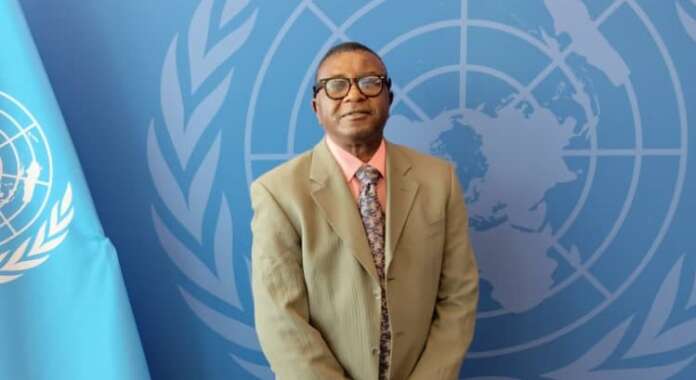By Sonnie Ekwowusi
In assessing the humanitarian issues of our time, the pitiable situation of Nigerian children calls for serious concern. A world with endangered children is a perishing world. It is a great indictment of our age that the victims of man’s inhumanity to man are our own children—the most innocent among us. Children are our future. Unfortunately, however, children everywhere are victims of rape, torture, infanticide, forced labour, child soldiering, child prostitution, child pornography, unsafe teenage sex, modern slavery, child street hawking, and preventable childhood diseases.
Therefore, this year’s Children’s Day celebration offers us another opportunity to reflect on the plight of Nigerian children. Over the past year, we have watched with alarm the increasing hostilities against children and the destruction of countless young lives in Nigeria. Most tragically, over the years, we have witnessed the unnecessary spilling of the blood of innocent children.
For example, in the past ten years, Boko Haram terrorists and abductors in the North have repeatedly stormed schools and seminaries, freely murdering, maiming, raping, and abducting their victims. To date, the whereabouts of Leah Sharibu—a schoolgirl abducted in the North by Islamic terrorists for refusing to convert to Islam—remain unknown. Just a few days ago in Ibadan, a stray bullet killed a 15-year-old SS1 secondary school student, Kehinde Alade. The Joint Admissions and Matriculation Board (JAMB) recently admitted that a “technical glitch” compromised some results of this year’s exam, after nearly 80% of the students recorded low grades. Frustrated by her poor score, Faith Opesusi Timileyin, 19, committed suicide.
Laws protecting children’s rights are not lacking in Nigeria. The Child Rights Act, 2003 (as amended) promotes the rights of children. Specifically, Section 30 of the Act prohibits child trafficking, child sex trafficking, and surrogacy. In addition, the Trafficking in Persons (Prohibition) Enforcement and Administration Act (TIPPEA Act) condemns all forms of human trafficking. Section 82 of the Act defines trafficking in persons to include:
“… the giving or receiving of payments or benefits to achieve the consent of a person having control over another person or debt bondage for the purpose of placing or holding the person, whether or not in involuntary servitude (domestic, sexual or reproductive), in forced or bonded labour, or in slavery-like conditions, the removal of organs or generally for exploitative purposes.”
This definition clearly captures surrogacy, as well as all parties to surrogacy and agents/persons involved in the business of surrogacy—including doctors, lawyers, and others—where exploitation is involved.
By virtue of the combined effect of Sections 228, 229, 230, and 328 of the Criminal Code (and their equivalent provisions in the Penal Code), abortion is illegal in Nigeria. The United Nations’ Declaration of the Rights of the Child states that “mankind owes the child the best it has to give.” Similarly, the Convention on the Rights of the Child (CRC) 1989, which Nigeria has signed and ratified, states that every child—before and after birth—has the right to life, basic education, and freedom of expression.
But despite the foregoing laws protecting the Nigerian child, children in Nigeria remain an endangered species. Unfortunately, only about 16 out of the 36 states of the federation have so far adopted the Child Rights Act. Despite the existing legal framework, infanticide and abortion are still routinely committed in many parts of the country. Disturbingly, many young Nigerian girls are renting their wombs for surrogacy for as little as ₦250,000. Similarly, others are selling their eggs for paltry sums. A few months ago, the University of Ibadan (UI) raised an alarm that many female students were selling their eggs—a dangerous practice that poses serious risks to their procreative health.
Equally disturbing is the sight of children aged between five and eighteen, without access to basic education, loitering the streets—abandoned by negligent parents. The few fortunate ones enrolled in public schools are exposed to various forms of danger. For over 12 years, school pupils and residents of several communities in local government areas of Oyo State have suffered from stray bullets fired from a shooting range inside a nearby army barracks. In other parts of the country, many schoolchildren are denied access to basic education due to unforeseen and avoidable circumstances.
As I stated earlier, this year’s Children’s Day Celebration affords us an opportunity to put in place the necessary mechanisms for the protection of our children. We must recognize that, like adults, children are entitled to the full enforcement of their rights. Therefore, states that object to the Child Rights Act on cultural and religious grounds are respectfully urged to adopt and implement the Act.
The Children and Young Persons (Street Trading) Law, which prohibits the employment of female children in street trading, should be enforced. Likewise, the Children and Young Persons (Harmful Publications) Act, the laws on abortion, and the Cinematography Law—which prohibit the dissemination of harmful publications and films to children—should also be enforced. The same applies to the Child Prostitution and Child Pornography Law (2002). Government agencies, voluntary organizations, and NGOs must create frameworks to promote existing child welfare services and trusts in the country.
A society that allows its children to be killed or dehumanized is heading for extinction. Public office holders and law enforcement agents must understand that children have rights that must be protected.
Our children should be given the opportunity to develop physically, mentally, morally, spiritually, and socially in a healthy environment, and in conditions of freedom and dignity. That is the only way we can hope to nurture the future leaders of tomorrow. Our future is built on the triumph of youthful potential. Therefore, if that potential is destroyed, our future is inevitably destroyed as well.





